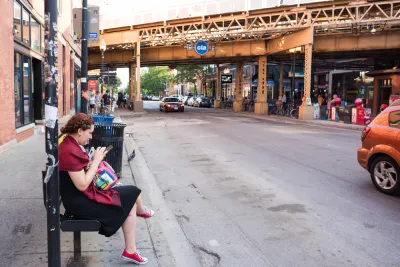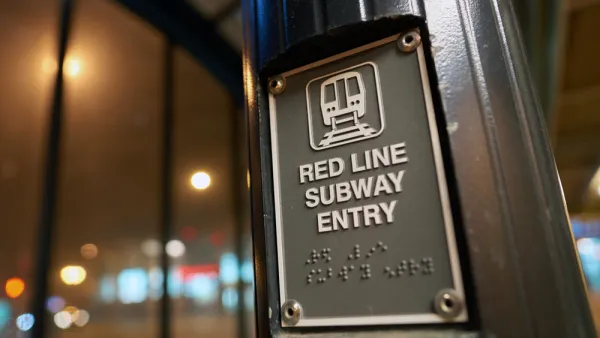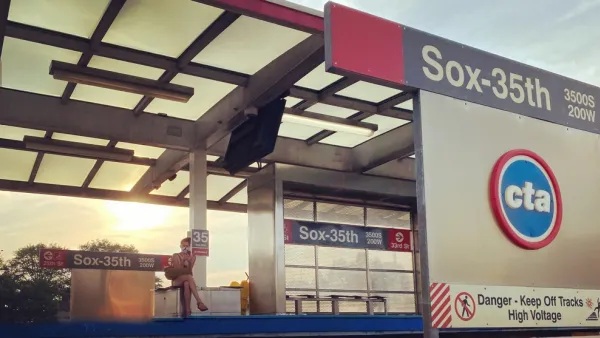A big approval and a significant delay—but otherwise 2020 has been a positive year for plans to extend the Chicago Transit Authority's Red Line by 5.6 miles to the south.

"The Chicago Transit Authority’s planned Red Line extension has made a 'significant' step toward securing about $1 billion in federal funds, the transit agency announced Monday," reports Stefano Esposito.
The $1 billion in necessary federal funding became a significant step closer to reality after the Federal Transit Administration gave preliminary approval for the extension that will add 5.6 miles to the Red Line, extending south of the Chicago city limits.
"The CTA now has two years to complete the next phase, which includes finalizing the project’s environmental impact statement and drawing up preliminary engineering documents," according to Esposito.
The step forward for the extension was cut with a step back, as Chicago Transit Authority officials announced that the timeline for the project's completion had been pushed back by three years, with an expected opening data now set for 2029.
Other than the delay, the extension's prospects are looking much more certain. Here's how a separate article by John Greenfield sums up the political dynamics influencing the project's future now:
Of course, even the 2029 start date assumes that the feds will come through with the $1 billion grant. But that possibility became a lot more likely with the election of Joe Biden, a noted rail fan. His appointment of former South Bend mayor Pete Buttigieg, who advocated for the extension of the South Shore Line commuter railroad into that city’s downtown, and rented a condo next door to the the [sic] Red Line’s Monroe station when he lived in Chicago in the late 2000s, probably won’t hurt either.
Planetizen last checked in with the plan in November 2020, after the release of the CTA's preferred plan for the extension's tracks and stations.
FULL STORY: CTA takes ‘significant’ step toward securing funding for Red Line extension

Analysis: Cybertruck Fatality Rate Far Exceeds That of Ford Pinto
The Tesla Cybertruck was recalled seven times last year.

National Parks Layoffs Will Cause Communities to Lose Billions
Thousands of essential park workers were laid off this week, just before the busy spring break season.

Retro-silient?: America’s First “Eco-burb,” The Woodlands Turns 50
A master-planned community north of Houston offers lessons on green infrastructure and resilient design, but falls short of its founder’s lofty affordability and walkability goals.

Test News Post 1
This is a summary

Analysis: Cybertruck Fatality Rate Far Exceeds That of Ford Pinto
The Tesla Cybertruck was recalled seven times last year.

Test News Headline 46
Test for the image on the front page.
Urban Design for Planners 1: Software Tools
This six-course series explores essential urban design concepts using open source software and equips planners with the tools they need to participate fully in the urban design process.
Planning for Universal Design
Learn the tools for implementing Universal Design in planning regulations.
EMC Planning Group, Inc.
Planetizen
Planetizen
Mpact (formerly Rail~Volution)
Great Falls Development Authority, Inc.
HUDs Office of Policy Development and Research
NYU Wagner Graduate School of Public Service



























